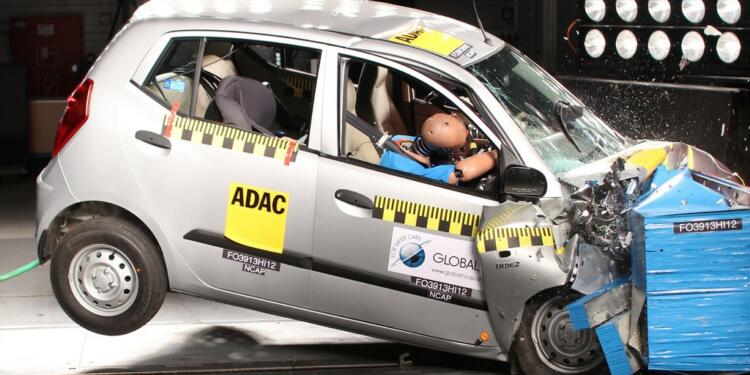How does the West see India? If you step into the shoes of a Western leader, you will probably perceive India as an old civilisation with a long colonial history from the mid-eighteenth century till the mid-twentieth century. They know that India is growing at a breakneck speed but still want India to toe their line in its policies.
Take vehicle safety standards for example. European carmakers like Fiat, BMW, Mercedes, and Volkswagen enjoy access to the booming Indian market. But when it comes to Indian carmakers, they are not able to make a mark in the European car market even though they want to. Why? Because European NCAP ratings are used to keep the Indian carmakers at a disadvantage. But forget European safety standards, because India is coming up with its own standards.
India to have its own safety ratings
Union Road Transport and Highways Minister Nitin Gadkari has made a big announcement about India’s plans to roll out its own vehicle safety standards.
India will no longer be following the yardstick set by the West and the Bharat New Car Assessment Programme (NCAP) will look at the safety of new vehicles and assign star ratings on their safety and sturdiness. This will be similar to the Global NCAP and European NCAP car safety programmes about which we know already.
Gadkari has not given any timeframe for launching the new vehicle safety standards. Yet, it is clear that the government is prioritising consumer safety and awareness about road safety norms.
Road safety at top of Modi government’s agenda
The government is trying to enhance road safety and reduce the number of fatal accidents in the country.
Presently, the road safety track record in India isn’t good enough. According to a report released by the World Bank last year, the country accounts for 11 per cent of global deaths in road accidents which is the highest in the world, though it has only 1 per cent of the world’s vehicles.
The report said, “India tops the world in road crash deaths and injuries. It has 1 per cent of the world’s vehicles but accounts for 11 per cent of all road crash deaths, witnessing 53 road crashes every hour; killing 1 person every 4 minutes.” The high number of road accidents causes a loss of over 3 per cent to India’s GDP.
But the government wants to change this. Gadkari said that the government will make it mandatory for all new vehicles that can carry up to eight passengers to have at least six airbags. There will be side curtain airbags in addition to the two front airbags. The government is trying to push other safety features too like a three-point seat belt and automatic emergency braking system (AEBS).
India heading for a major turnaround in the automobile sector
The latest announcement by Union Minister Nitin Gadkari comes as a major shot in the arm for India’s domestic automakers.
India’s automakers have already started to make rapid progress. Tata and Mahindra have been manufacturing some incredibly safe cars. Both Tata Nexon and Tata Punch for example have achieved a 5-star rating in crash tests. Similarly, Mahindra XUV300 and Mahindra Thar too have achieved high scores of 5 stars and 4 stars respectively.
So, the era when Indian cars were ridiculed for performing poorly in safety tests is long gone. The Indian car industry has the potential of making deep inroads and therefore an Indian NCAP rating system can help Indian automakers win the trust of domestic and foreign consumers, which will help them in improving their performance in the Indian market as well foreign markets. The new vehicles safety ratings in India is thus going to herald a glorious era for the Indian auto industry.
























